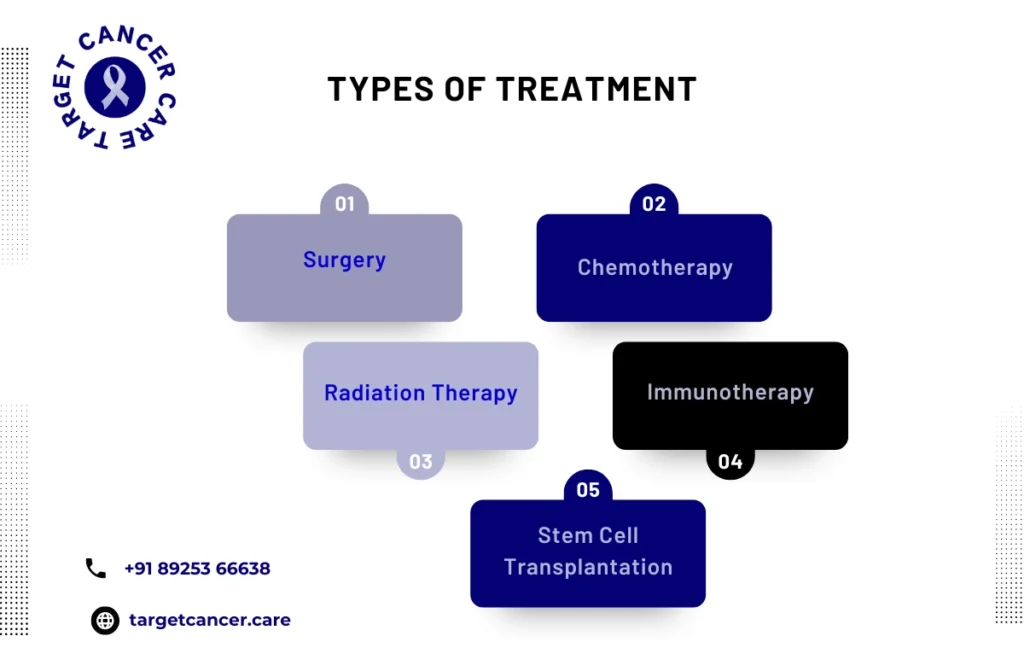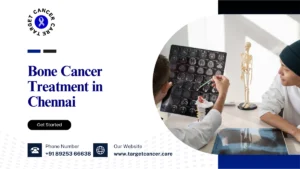Pediatric oncology and hematology is a specialized branch of medicine that focuses on diagnosing and treating cancers in children, from infants to adolescents. Unlike adult cancers, which often follow more predictable patterns, childhood cancers can behave unpredictably, necessitating a unique approach to care. At Target Cancer Care, our dedicated pediatric oncology and hematology team is committed to delivering not just advanced medical treatments, but also emotional and psychological support tailored to the needs of young patients and their families. Our holistic approach aims to foster hope and healing, guiding children through the complexities of their cancer journey with care and compassion.
What Is Pediatric Oncology?
Pediatric oncology and hematology is a crucial medical field dedicated to the unique challenges of diagnosing and treating cancers in children. The types of cancers that affect young patients can differ significantly from those seen in adults, both in terms of their biology and their response to treatment. Our team at Target Cancer Care comprises specialists who are adept at navigating these complexities, ensuring that each child receives individualized care that meets their physical and emotional needs.
- Pediatric Oncology Definition: A specialized field focusing on the care of children with cancer.
- Tailored Treatment Approaches: Emphasizing individualized therapies that consider each child’s developmental stage and health.
- Holistic Care: Comprehensive support that extends to the child’s emotional, psychological, and social well-being.
At Target Cancer Care, we prioritize a personalized approach, working diligently to improve the health outcomes and quality of life for our young patients.
Types of Childhood Cancer
Pediatric oncology and hematology encompasses a variety of cancers that predominantly affect children, each requiring specialized care and treatment plans. Recognizing the different types of childhood cancer is vital for families and healthcare providers in navigating the best care options. Some of the most prevalent types include:
- Leukemia: The most frequently diagnosed cancer in children, impacting blood and bone marrow with varying subtypes that necessitate specific treatment regimens.
- Brain and Central Nervous System Tumors: These tumors, which can significantly affect cognitive functions and development, require meticulous diagnosis and a multidisciplinary treatment approach.
- Lymphoma: This category includes cancers that affect the lymphatic system, with different types (Hodgkin and Non-Hodgkin) presenting unique challenges and treatment pathways.
- Neuroblastoma: Originating in nerve cells, this cancer often affects young children and can be aggressive, necessitating a tailored and urgent treatment strategy.
- Wilms Tumor: Primarily occurring in young children, this type of kidney cancer requires precise surgical intervention and follow-up care.
At Target Cancer Care, we offer specialized diagnostic and treatment services for each type of childhood cancer, ensuring our young patients receive the most appropriate care for their unique conditions.

How Pediatric Oncology and hematology Helps Your Child
Pediatric oncology and hematology focuses on diagnosing and treating cancers in children, providing specialized care tailored to young patients’ physical and emotional needs. These programs are designed to offer comprehensive care, from early detection to advanced treatments, ensuring the best possible outcomes for children and their families.
Key benefits of pediatric oncology and hematology include:
- Multidisciplinary care combining expertise from oncologists, surgeons, and support teams.
- Child-centered approaches to minimize stress and improve recovery.
- Access to clinical trials and cutting-edge therapies.
With advancements in pediatric oncology, families can expect personalized treatment plans aimed at delivering hope and healing.
Diagnosing Childhood Cancer
Diagnosing childhood cancer is a critical first step in pediatric oncology and hematology. Early detection can significantly improve outcomes, emphasizing the importance of awareness and timely medical intervention. Common methods used in diagnosing childhood cancer include:
- Medical History and Physical Examination: Pediatric oncologists begin by reviewing the child’s medical history and conducting a thorough physical exam. Signs like unexplained lumps, persistent fever, or unusual fatigue can be early indicators.
- Laboratory Tests: Blood and urine tests help detect abnormalities, such as abnormal white blood cell counts, which may suggest leukemia, one of the most common types of childhood cancer.
- Imaging Studies: Advanced imaging techniques like MRI, CT scans, and X-rays provide detailed visuals to identify tumors or other irregularities.
- Biopsy: A biopsy involves removing a small tissue sample for microscopic examination. It is essential for confirming the diagnosis and determining the specific type of childhood cancer.
By combining these diagnostic tools, pediatric oncologists can accurately identify the nature and stage of the cancer, paving the way for personalized treatment plans.
Treatment of Childhood Cancer
The treatment of childhood cancer involves a comprehensive strategy that integrates advanced medical therapies with a strong focus on the overall well-being of the child. Our pediatric oncology and hematology specialists at Target Cancer Care design individualized treatment plans, carefully considering the child’s specific cancer type, stage, and overall health.
Key Elements of Our Treatment Strategy Include:
- Personalized Treatment Plans: Each plan is meticulously crafted to address the individual needs and medical conditions of the child.
- Collaborative Care Team: Our integrated team includes pediatric oncologists, nurses, social workers, and child life specialists who collaborate to support the child and family.
- Emotional and Psychological Support: We recognize the profound emotional toll a cancer diagnosis can have; therefore, we provide counseling and resources to help families cope with the challenges they face.
Target Cancer Care is committed to walking alongside families through their treatment journey, providing expertise and compassion throughout the process.
Types of Treatment
In pediatric oncology and hematology, the choice of treatment is crucial and must be tailored to each child’s unique needs. At Target Cancer Care, we employ a diverse array of advanced treatment modalities, ensuring that every approach is both effective and mindful of minimizing side effects.
- Surgery: Often a primary treatment for solid tumors, aimed at removing cancerous growths and providing immediate intervention.
- Chemotherapy Treatment: This involves using systemic medications that target rapidly dividing cancer cells, often requiring careful management of side effects in young patients.
- Radiation Therapy: Employing high-energy rays to target and destroy cancer cells, radiation is often used in conjunction with other treatments to maximize effectiveness.
- Immunotherapy Treatment: A cutting-edge treatment that harnesses the body’s immune system to fight cancer, showing promising results in pediatric patients.
- Stem Cell Transplantation: This procedure is used to restore healthy bone marrow, providing a crucial option for children whose cancer treatments have affected their ability to produce blood cells.
At Target Cancer Care, our treatment approaches are designed with both effectiveness and the child’s overall health in mind, prioritizing the minimization of side effects wherever possible.
Surgery for Childhood Cancer
Surgical intervention is often a cornerstone in the treatment of childhood cancer. It plays a critical role in diagnosing, staging, and removing tumors. Surgeons specializing in pediatric cases prioritize precision and minimally invasive techniques to ensure faster recovery and reduced impact on a child’s growing body.
Common surgical procedures in childhood cancer treatment:
- Biopsy: To determine the type and stage of the cancer.
- Tumor resection: Complete removal of the tumor.
- Reconstructive surgeries: To restore function or appearance post-treatment.
Surgery, as part of a holistic plan, often complements other therapies like radiation and chemotherapy for a more effective treatment of childhood cancer.
Radiation Therapy for Childhood Cancer
Radiation therapy uses high-energy beams to target and destroy cancer cells, a critical component in the treatment of childhood cancer. This non-invasive method can be tailored to minimize exposure to surrounding healthy tissues, making it especially suitable for children.
When is radiation therapy recommended?
- To shrink tumors before surgery.
- To destroy remaining cancer cells post-surgery.
- As a standalone treatment for certain types of childhood cancer like brain tumors or lymphomas.
Benefits of radiation therapy include:
- High precision targeting cancerous cells.
- Short treatment sessions.
- Compatibility with other therapies.
Pediatric oncologists work closely with radiation specialists to ensure safety and effectiveness.
Risk Factors
Understanding the risk factors associated with childhood cancer can facilitate early detection and proactive management. Research in pediatric oncology and hematology has identified several risk factors that may increase a child’s susceptibility to developing cancer:
- Genetic Factors: Certain genetic predispositions can increase the likelihood of childhood cancers, highlighting the importance of family medical history.
- Family History: A history of specific cancers in the family may elevate a child’s risk, warranting closer monitoring and preventive measures.
- Genetic Syndromes: Some inherited syndromes, such as neurofibromatosis and Li-Fraumeni syndrome, are associated with a higher risk of various cancers.
- Exposure to Radiation: Previous radiation exposure for other medical conditions can increase the likelihood of developing cancer in children.
- Compromised Immune System: Children with weakened immune systems, whether due to congenital conditions or treatments, may be more vulnerable to cancer.
- Certain Medications: Long-term use of specific medications has been linked to an increased risk of cancer in pediatric populations.
At Target Cancer Care, we focus on raising awareness and promoting early screenings, particularly for children identified as at higher risk.
Causes
Understanding the causes of childhood cancer is an evolving area of pediatric oncology and hematology research. Unlike adult cancers, which are often linked to lifestyle factors, the causes of childhood cancer are largely genetic or environmental. Here are some key contributors:
- Genetic Mutations: In many cases, childhood cancers arise from random genetic mutations during early development. These mutations can cause cells to grow uncontrollably, leading to tumors.
- Inherited Conditions: Some children inherit genetic predispositions that increase their risk of developing cancer. For instance, conditions like Li-Fraumeni syndrome or Down syndrome are linked to higher cancer susceptibility.
- Environmental Factors: Exposure to certain chemicals or radiation can sometimes trigger genetic changes that result in childhood cancers.
- Unknown Factors: A significant percentage of childhood cancer cases have no identifiable cause, underscoring the need for continued research in pediatric oncology and hematology.
By identifying potential causes, medical professionals aim to develop preventative strategies and improve early intervention methods for childhood cancer.
Prevention and Wellness
While it is not possible to prevent all childhood cancers, certain proactive strategies can significantly reduce risks and foster a healthier lifestyle. Our pediatric oncology team at Target Cancer Care emphasizes the importance of prevention and health education to empower families:
- Vaccination: Administering appropriate immunizations, such as those for HPV and hepatitis B, can help lower the risk of certain cancers.
- Healthy Nutrition: Encouraging a diet rich in nutrients, including plenty of fruits, vegetables, and whole grains, helps to support immune function and overall health.
- Sun Safety: Educating families on the importance of sun protection to prevent skin cancers, particularly in children with sensitive skin.
- Avoiding Tobacco Smoke: Limiting children’s exposure to secondhand smoke is crucial in reducing cancer risks and promoting respiratory health.
- Regular Health Check-ups: Routine visits to healthcare providers allow for early detection of any health concerns, improving the potential for successful treatment.
At Target Cancer Care, our specialists are dedicated to providing families with the knowledge and resources necessary to promote wellness and reduce the risk of cancer.
Conclusion
Pediatric oncology and hematology represents a field filled with both challenges and hope, dedicated to providing specialized care for children facing cancer. At Target Cancer Care, our mission is to deliver compassionate, comprehensive treatment that is tailored to the unique needs of each child. Our pediatric oncology team is here to support young patients and their families through every stage of diagnosis, treatment, and recovery, ensuring they feel supported and informed throughout the process. With our commitment to excellence and compassionate care, we strive to provide healing, comfort, and the best possible outcomes for every child in our care.
Read also Pediatric Lung Cancer Symptoms.




